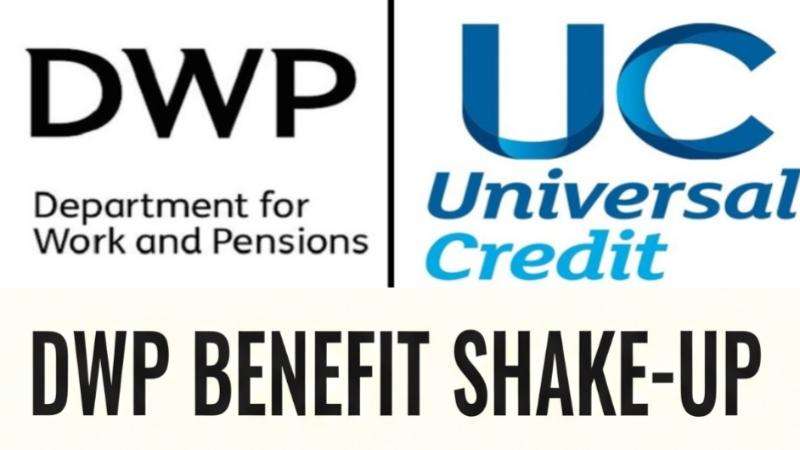The Department for Work and Pensions (DWP) is embarking on a substantial overhaul of its benefits system, with significant changes planned for Universal Credit and disability payments. These reforms aim to redefine how support is delivered, encouraging employment while ensuring those with the greatest needs receive appropriate assistance. In parallel, the DWP is issuing a vital reminder to the more than 1.4 million Pension Credit claimants about their obligation to report any summer travel outside mainland Britain.
Major Shifts Ahead for Universal Credit and Disability Benefits
The Universal Credit and Personal Independence Payment Bill 2024-25, introduced in June 2025, signals a pivotal moment for welfare in the UK. While some initial proposals have been refined, key adjustments are set to impact claimants in the coming years.
Universal Credit is slated for a "rebalancing." The standard allowance will see above-inflation increases annually from 2026/27 until 2029/30, with a single claimant aged 25 and over projected to receive £106 per week by 2029/30. This move is designed to inject more funds directly into the pockets of working individuals and low-income households. Conversely, the Universal Credit health element for new claimants will be reduced to £50 per week in 2026/2027 and then frozen until 2029/2030, with existing recipients seeing their payments frozen at £97 per week in cash terms over the same period. The DWP states this aims to address incentives and encourage more people into the workforce. Furthermore, from April 30, 2025, over a million Universal Credit households are now retaining more of their benefits, as the maximum deduction rate for debt repayments has been capped at 15%, down from 25%. This translates to an average of £420 more per year for 1.2 million households, including those with children.
A comprehensive review of the Personal Independence Payment (PIP) assessment process is also underway, led by the Minister for Social Security and Disability, Sir Stephen Timms. Set to commence in Autumn 2025 and conclude by Autumn 2026, this review will examine the role of the PIP assessment, its criteria, and the use of evidence beyond functional assessments. The goal is to ensure fair access to support and better experiences for individuals with health conditions and disabilities, with input from disabled people and relevant organizations.
Looking ahead to 2025, a significant transition towards a digital-first assessment process for disability benefits is anticipated. This shift is intended to accelerate decision-making, streamline applications, and provide more tailored assistance, potentially reducing the need for face-to-face assessments where robust digital medical documentation is available. Additionally, some disability benefit recipients may see more frequent payments starting in September 2025, offering increased flexibility. Reassessment rules could also be extended, or indefinite awards granted for those with lifelong conditions, aiming to alleviate administrative burdens.
Pension Credit: Summer Travel Alert
Amidst these extensive reforms, the DWP is re-emphasizing a crucial requirement for the 1.4 million elderly Britons receiving Pension Credit: you must report your holiday plans if you're leaving Great Britain this summer.
Pension Credit, a vital benefit providing an average of £4,300 annually, can be affected by absences from the mainland UK. This includes any trip, however brief, to Northern Ireland, the Isle of Man, or the Channel Islands. Current DWP guidelines specify that Pension Credit may be paid for up to four weeks for a temporary absence, extending to eight weeks if linked to a death, or up to 26 weeks for medical treatment or convalescence. Crucially, claimants are advised to inform the DWP before their departure to avoid any impact on their entitlement.
Pension Credit aims to supplement the weekly income of those over State Pension age (currently 66) who are on a low income. It comprises two main parts: Guarantee Credit, which tops up weekly income to a minimum of £227.10 for single individuals and £346.60 for couples (with higher amounts for disabled individuals, carers, or those with specific housing costs); and Savings Credit, available to those who reached State Pension age before April 6, 2016, and have some retirement savings, offering up to £17.30 a week for a single person and £19.36 for a couple. Even a minimal award of £1 per week can unlock further support, such as Council Tax discounts, free TV licences for those aged 75 and over, help with NHS costs, and the Warm Home Discount Scheme.
The DWP estimates that approximately 760,000 eligible individuals are not currently claiming Pension Credit, often due to misconceptions about eligibility based on savings or homeownership. To check eligibility and apply, individuals can use the online Pension Credit calculator on GOV.UK, call the Pension Credit helpline directly on 0800 99 1234, or seek advice from organizations like Independent Age, Income Max, Citizens Advice, and Age UK. Applications can be initiated up to four months before reaching State Pension age, and claims can be backdated for three months, potentially resulting in a significant initial payment.
Benefit Uprating and Cost of Living Support
In April 2025, benefits, including Universal Credit, saw a 1.7% increase, while the State Pension rose by 4.1% under triple lock rules, bringing the full new flat-rate pension to £230.25 weekly. While official rates typically adjust on April 6, some Universal Credit claimants may observe their new rates around June due to assessment period calculations.
Looking at July 2025, there are no further general Cost of Living Payments planned by the DWP beyond those already announced. However, a specific £300 Cost of Living Payment is scheduled for mid to late July 2025, aimed at low-income households on means-tested benefits. Eligibility for this payment is tied to having received an eligible benefit between June 5 and June 25, 2025. This payment is automatic and tax-free.
The DWP urges all claimants to stay informed about changes to benefits and to promptly report any alterations in their circumstances to ensure uninterrupted payments.


_3.jpg)
_2.jpg)
_3.jpg)



.svg)

_3.jpg)

_4.jpg)